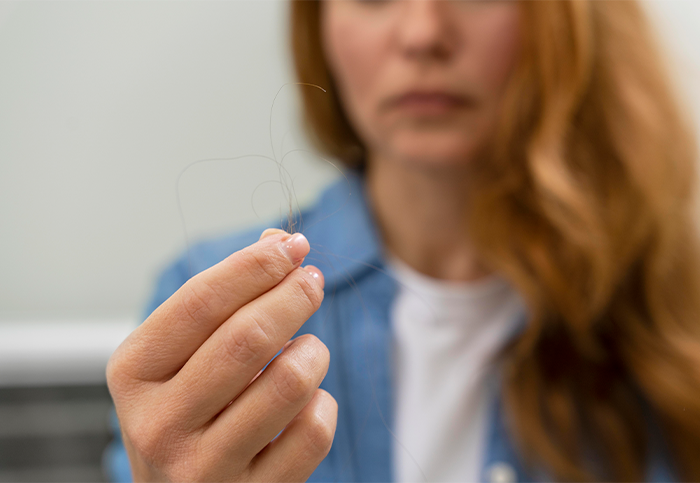PCOS Unveiled: Daunting Struggles of a Complex Syndrome
Five years ago, Anna, with dreams of a blemish-free face, faced a daunting challenge: persistent acne. Her early twenties were filled with trying every home remedy she could find. She slathered turmeric and honey on her skin, hoping for a miracle, but all went in vain. Her mother, seeing her daughter’s distress, decided it was time for a more effective solution. They finally went to see a dermatologist, hoping for an end to her misery. The dermatologist examined Anna carefully and recommended a topical cream, suggesting they also consult a gynaecologist.
Anna and her mother followed the doctor's advice. It was a whirlwind of medical visits, ultrasound, and blood tests, but they persevered. Eventually, the results came in, and Anna was diagnosed with Polycystic Ovary Syndrome (PCOS). PCOS diagnosis is in itself a struggle but as the doctor told her getting the right diagnosis is the first step to management.

While consulting a professional is wise, it doesn’t hurt to have a little knowledge about this condition.
Polycystic Ovary Syndrome (PCOS)
Polycystic Ovary Syndrome, commonly known as PCOS, is a condition that affects women of reproductive age. While cysts in one or both ovaries are a characteristic symptom of PCOS, not everyone suffering from PCOS has cysts. This variability makes PCOS a complex condition to diagnose, navigate, and manage.
Causes of PCOS
Due to its multi-factorial nature, it is difficult to pinpoint a specific cause for PCOS. Genetics and environmental factors are the main contributors to this condition, but there are a number of risk factors that can increase the likelihood of developing PCOS. They include, but are not limited to, lifestyle choices, diet, and infectious biomarkers.
Symptoms of PCOS
Most of the symptoms of PCOS stem from the hormonal and metabolic imbalances caused by disease. During PCOS, the body begins producing an excess of male hormones called androgens, leading to symptoms such as
• Acne
• Hirsutism
• Darkening of skin
• Male-pattern baldness

Additionally, the metabolic changes caused by PCOS can be quite severe. Our body produces, insulin, a hormone that carries glucose in the cell. However, androgen level interferes with glucose uptake. To compensate, the body begins producing excess insulin. When this phenomenon continues over time, insulin resistance occurs, which leads to symptoms like
• Weight gain (particularly abdominal)
• Type 2 diabetes
• Digestive issues

The range of symptoms doesn’t stop here. The hormonal imbalance, particularly higher LH (luteinizing hormone) to FSH (follicle stimulating hormone) ratio leads to problems in ovulation (release of an egg). This in turn leads to
• Irregular or absent menstrual cycle
• Fertility issues
How PCOS Impacts Life?
Living with PCOS is a bumpy ride. Feelings of fatigue and the inability to get out of bed are the first impacts of this disease that you feel as soon as you wake up. Due to its chronic nature, these feelings persist but continue to affect you throughout the day. Struggling, you go about your routine—showering, making breakfast, and getting ready. As you peek at yourself in the mirror, you can’t help but notice clusters of acne around your temple and patches of hair under your chin. You quickly grab a face shaver and remove the hair before you leave. Going about your day, you might feel a sudden urge to eat a slice of chocolate cake. But before you can even order one, you remember the kilograms you gained during a three-day trip. Brushing the thought away, you settle for a salad. As the day ends, you head to the gym, probably because you’ve paid for its overpriced membership, and do an hour-long workout session that you know may prove futile. The day ends with you tossing and turning in bed, unable to sleep due to unruly hormones that keep fluctuating like a roller coaster.
Getting a PCOS diagnosis isn’t the end of the world. While the condition is complex, it is still manageable and there are cases where women have successfully improved their condition by managing PCOS symptoms.
References
https://journals.sagepub.com/doi/10.1177/2633494120911038https://www.sciencedirect.com/science/article/pii/S2590161319300948



